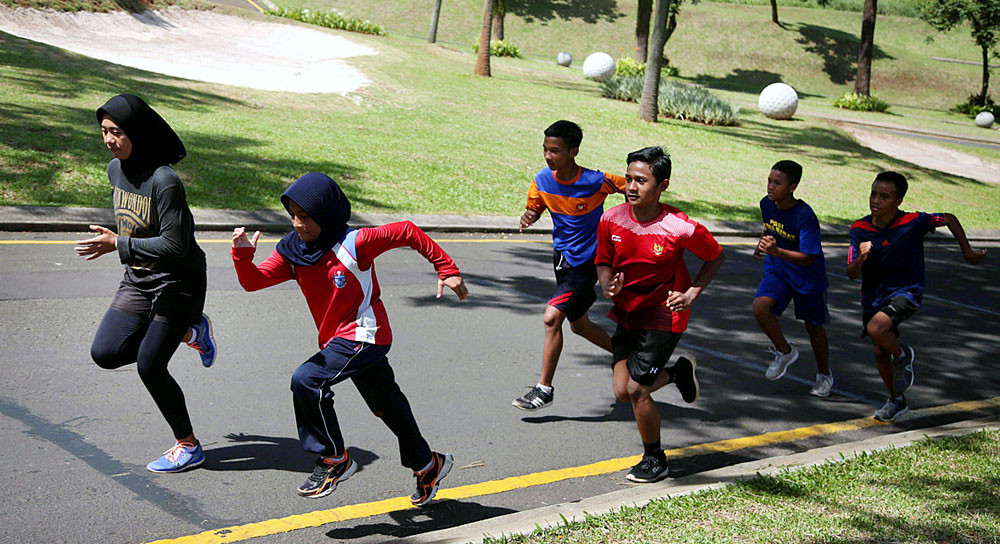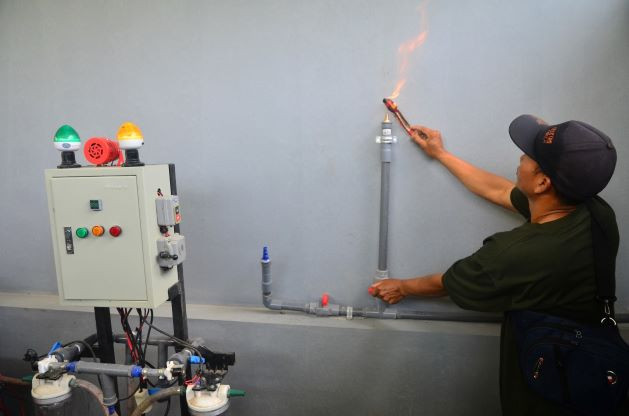Popular Reads
Top Results
Can't find what you're looking for?
View all search resultsPopular Reads
Top Results
Can't find what you're looking for?
View all search resultsStop making extra-curricular activities, extra
Change text size
Gift Premium Articles
to Anyone
C
o-curricular activities are usually clubs or sporting activities where school children take part in, outside of regular school hours. In some schools they are called extra-curricular activities.
Many schools really don’t care for these extra-curricular activities. Neither do many parents.
At many schools, extra-curricular activities are done after-school and by an out-sourced party, meaning that students have to allocate extra time and money for these activities.
Worse, they are sometimes run by teachers with passion but no experience – which shows the lack of thought given for extra-curricular activities. After all, you wouldn’t ask an inexperienced math teacher to teach a class just because she has the passion to do so.
A school’s position on extra-curricular activities is even more confusing when we take account the limited membership of some activities. Some activities are even exclusive to the best of students, especially when it comes to sports.
Even when students have registered and participated in the extra-curricular activities, their development is not being tracked and monitored as well as other subjects. There is no extra intervention to help a child do better in sports or music, for instance, just like schools are seriously doing for their main subjects.
The fact is many schools do not give extra-curricular activities the level of importance they deserve for their student’s intellectual, social, physical, emotional, and even moral development. As for parents there is a stark lack of understanding as to what extra-curricular activities can do for their child’s holistic development.
In an unpredictable world when we stress 21st century skills we often speak of collaboration, creativity, communication, entrepreneurism and perseverance. And these are skills that can effectively be honed outside the classroom.
For example, when you play sports, you learn about discipline and endurance. You learn that practice and preparation cuts the odds of failure, you develop grit and doggedness, spunk and tenacity. If it’s a team sport, you learn about teamwork and leadership values. You experience winning and losing. You pick your chin up when you lose and move on. You celebrate victory with grace and humility. You learn about camaraderie and sportsmanship. You make new friends with people who are of a different color, come from a different background and may be even speak a different language. All this, while learning about your own body and your own health.
Similar skills are honed if you join a club or play a musical instrument. If it is a robotics and design club, you learn about real world issues and how technology can disrupt and change the world. You learn about of adaptability. You witness curiosity and see problem-solving in action. If it is a musical instrument you want to play, you begin to explore your own creative self, you understand the ability to express your emotions differently, and you learn to be patient and understand how to harmonize when others play next to you.
Extra-curricular activities build personality and the young learn real life skills like time management. They teach you to organize, network and better understand your strengths and weaknesses. You may be the role model which builds your own confidence. Or you may see other role models for you to emulate. Extra-curricular activities allow you to relax, rejuvenate, mingle and smile.
Parents often wonder why their children do well in school but struggle in the real world. CEOs complain graduates lack the organizational skills they need. They don’t collaborate nor do they persevere. They don’t communicate well and quit easily. Many human resources managers say they pay less attention to the grades or the universities which applicants often flaunt. These recruiters now scrutinize sports and club credentials.
In the US, 95 percent of Fortune 500 CEOs play college sports. Indra Nooyi, chairman and CEO of PepsiCo, played cricket at college in India. Facebook’s chairman and CEO Mark Zuckerberg was captain of his high school fencing team. Sports and clubs are clearly essential to forming leadership skills.
In Indonesia, I know of parents who yank their children out of extra-curricular activities because to them going to tutors for extra classes is more important. These parents apparently see extra-curricular activities as mere “time fillers” with no “developmental impact”.
Then I read about a progressive school in Singapore that stops academic teaching early on Fridays so that students can go enjoy their favorite extra-curricular activities.
Schools need to make the mind shift to admit that extra-curricular activities are just as important as math and science and all those other subjects they teach in classrooms. And when that mind shift happens, I am sure we will begin to see some of these developments in progressive schools:
A Monday perhaps starting with club-time, then followed by math and science. Parents partnering with schools to encourage their children to remain active in extra-curricular activities. A Wednesday or a Friday that perhaps sees teaching stop mid-day with students moving to their favorite sport. Qualified teachers with experience and passion running clubs and sports.
Students being allowed to choose what they want from the spectrum of extra-curricular activities, and schools accommodating every child without tests or trials.
Participation and development in extra-curricular activities being tracked with earnest encouragement and intervention to allow a child to develop in his or her favorite sport or club.
And finally, please, can we not call extra-curricular activities? If math is math and science is science, then let us call sports as sports and let club time be club time.
***
The writer is the founder and chairman of SIS (Singapore Intercultural School Group of Schools), a chain of private schools in Indonesia www.sisschools.org










